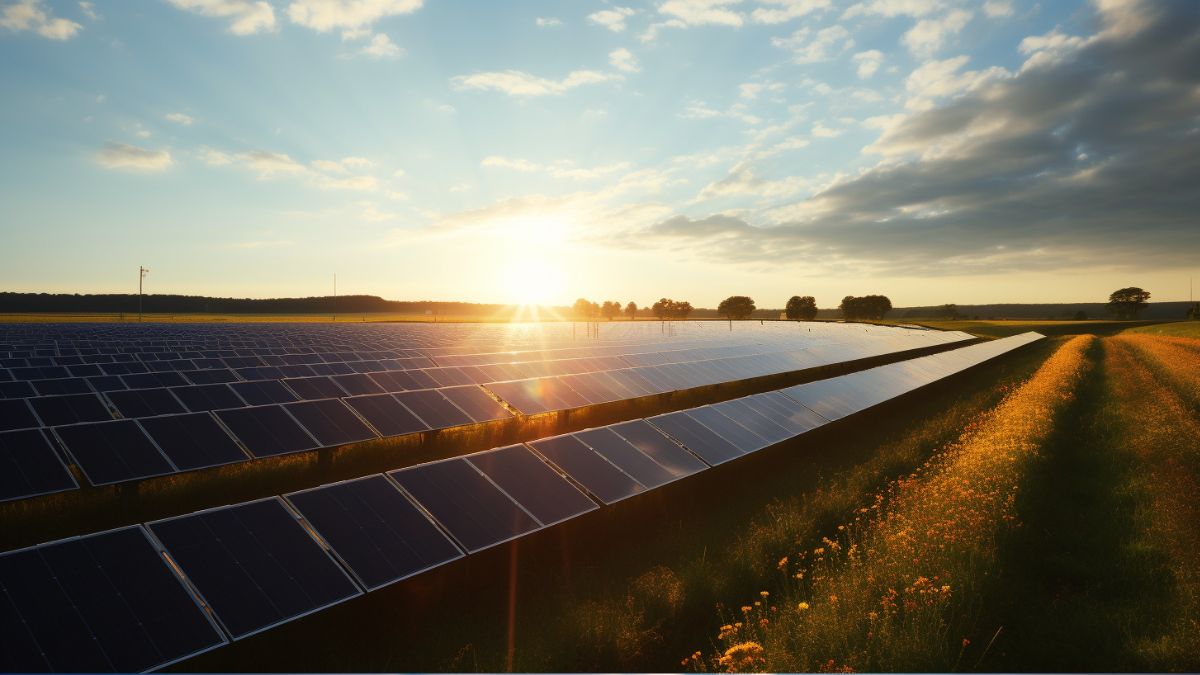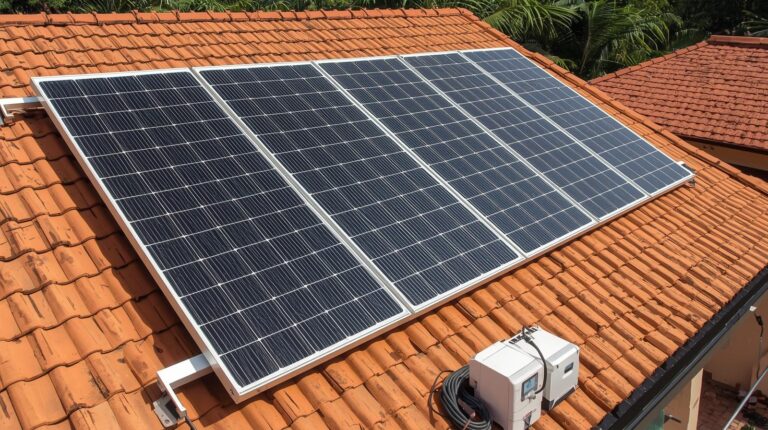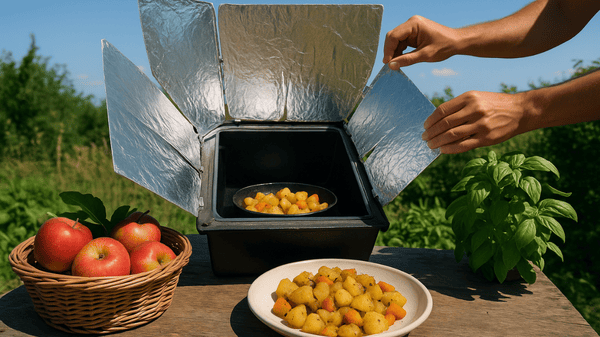Hey there! We’re here to spill the beans on a game-changer for farms: solar power. In this article, we’ll uncover the countless perks that solar energy for farming brings for the industry. From saving big bucks and going green to conserving water and embracing renewable energy, solar power has got it all.
So, buckle up and join us as we explore the incredible advantages of solar power for farms. You won’t want to miss this enlightening ride!
Financial Benefits
The financial benefits of installing solar energy for farming are significant and can greatly impact the bottom line. With solar power incentives and financial savings, farmers can save thousands of dollars annually.
Government incentive programs like the federal investment tax credit provide financial relief by reducing installation costs. Additionally, the depreciation of these costs from taxable income after a year further enhances the savings.
Grants and special financing programs are also available to assist with the financial aspect of installing solar power. These financial benefits not only contribute to the farm’s profitability but also emphasize the importance of sustainable and renewable energy sources.
Environmental Benefits
Switching to solar energy for farming offers numerous environmental benefits. Not only does it reduce air and water pollution originating from the farm, but it also plays a role in honey bee conservation. By growing local plants beneath solar panels, we create a space for pollinators like honey bees to thrive, ultimately improving crop yield.
This is a win-win situation for both the environment and our farm’s productivity. Solar power helps us become good stewards of nature, as we reduce our carbon footprint and contribute to the preservation of important ecosystems.
Water Efficiency
When it comes to solar energy for farming, our focus now turns to improving water efficiency. Enhancing irrigation is crucial for maximizing crop yield and minimizing water wastage. With solar panels providing shade, plants beneath them require less water compared to those constantly exposed to sunlight. This not only saves water but also reduces the effort and resources needed for watering.
Furthermore, solar power can help farms become more drought-resistant by ensuring reliable access to energy for water pumps during dry spells. By harnessing the power of the sun, farms can enhance their irrigation systems and better cope with water scarcity.
Renewable Energy
We can harness the power of renewable energy on the farm through solar panels. Solar power provides an alternative energy source for various farm operations, reducing monthly energy bills and increasing self-reliance.
With solar power, farms can achieve sustainability benefits and energy independence. By embracing solar power, farms not only save money on energy bills but also position themselves as environmentally conscious and ethical, attracting consumers who prioritize these values.
Additionally, solar power installation qualifies for government incentive programs, saving thousands of dollars annually. Grants and special financing programs are available to help with the financial aspect of installing solar power.
Energy Credits
By harnessing solar energy for farming, we can’t only save money on energy bills but also benefit from energy credits. Here are four reasons why energy credits are a valuable incentive for farmers:
- Financial Gain: Selling excess energy generated through solar panels can provide direct financial benefits. Instead of letting that extra energy go to waste, farmers can sell it back to the state and earn money.
- Offset Energy Costs: In many places, excess solar energy can be used as credits against future energy bills. This means that farmers can save money on their energy bills by utilizing the energy they generate themselves.
- Net Metering: Solar power helps save money on energy bills through net metering credits. This system allows farmers to receive credits for any excess energy they produce, offsetting the cost of their energy consumption during periods of low solar production.
- Environmental Responsibility: By selling excess energy, farmers aren’t only benefitting financially but also contributing to a cleaner, more sustainable energy grid. It’s a win-win situation for both the farmers and the environment.
Improved Crop Management
Solar power enhances crop management on farms by optimizing efficiency and reducing costs. With increased yield and improved pest control, solar power proves to be the farming advantage you need.
By harnessing the sun’s energy, farmers can maximize their crop production and minimize losses caused by pests. The use of solar-powered equipment, such as drying systems, speeds up the crop drying process, saving valuable time and resources.
Additionally, solar power provides a renewable energy source that reduces reliance on fluctuating energy prices. This not only lowers energy costs but also gives farms a competitive edge in the market.
Competitive Advantage
To gain a competitive advantage in the farming industry, harnessing solar power offers numerous financial and environmental benefits. Here are four reasons why solar power can give your farm an edge:
- Reduced costs: Solar power reduces energy costs, allowing farms to save money and allocate resources to other areas of the business. Lower production costs due to solar power can boost profits.
- Branding opportunities: Embracing solar power improves marketing by positioning the farm as environmentally conscious and ethical. This attracts consumers who prioritize these values, giving your farm a unique selling point in a crowded market.
- Financial incentives: Solar power installation qualifies for government incentive programs, such as the federal investment tax credit. Grants and special financing programs are also available, making it easier to afford the initial investment.
- Energy independence: By using renewable solar energy, farms become less reliant on fluctuating energy prices and increase self-sufficiency. This stability allows for better long-term planning and reduces the risk of unforeseen energy expenses.
With reduced costs, branding opportunities, financial incentives, and energy independence, solar power can give your farm the competitive edge it needs in today’s market.
Conclusion
Solar power is like a golden ray of opportunity shining down on the farming industry. With its financial advantages, environmental benefits, water efficiency, renewable energy, improved crop management, and competitive edge, solar power is truly transforming the way farms operate.
It’s a bright and sustainable future for farmers, allowing them to save money, reduce pollution, conserve water, and increase profits. Embracing solar power isn’t just a smart choice, but a necessary one for the success and longevity of the farming industry.




